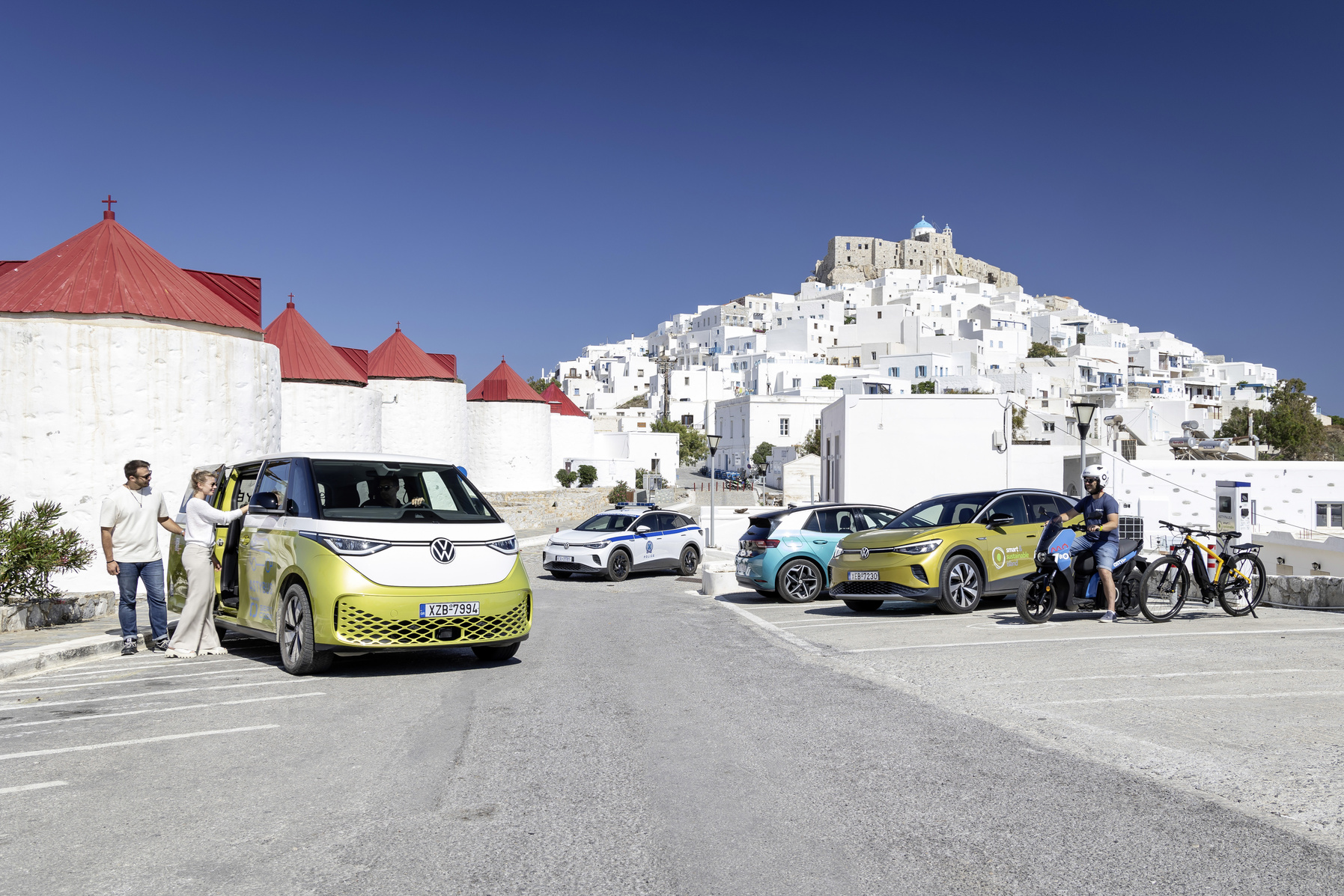Greek island Astypalea has emerged as a visionary laboratory for the future of smart and sustainable mobility. In an exciting collaboration between the Volkswagen Group and the Hellenic Republic, this picturesque place is undergoing a transformation towards e-mobility, digital mobility solutions, and green energy. The results so far are indeed promising: 25 percent of the inhabitants regularly use the ASTYBUS ridesharing service. Over the past twelve months alone, ASTYBUS has covered a distance of over 200,000 customer kilometers. Electrification also makes progress: Almost all new cars to be registered on Astypalea are now fully electric.
Driving Transformation: Volkswagen Group’s Design Expertise
The Volkswagen Group supports Astypalea with its comprehensive mobility know-how as well as vehicles from the Volkswagen, Volkswagen Commercial Vehicles, Ducati and SEAT MÓ brands. The measures to transform the mobility sector have been almost completely implemented. These include, in particular, the public charging infrastructure, the special subsidy scheme for private customers and companies, the electrification of authority vehicles (e.g. police, airport), as well as the mobility services ASTYBUS and astyGO. The number of electric vehicles on the small island has risen from zero to 84 in a short period of time.
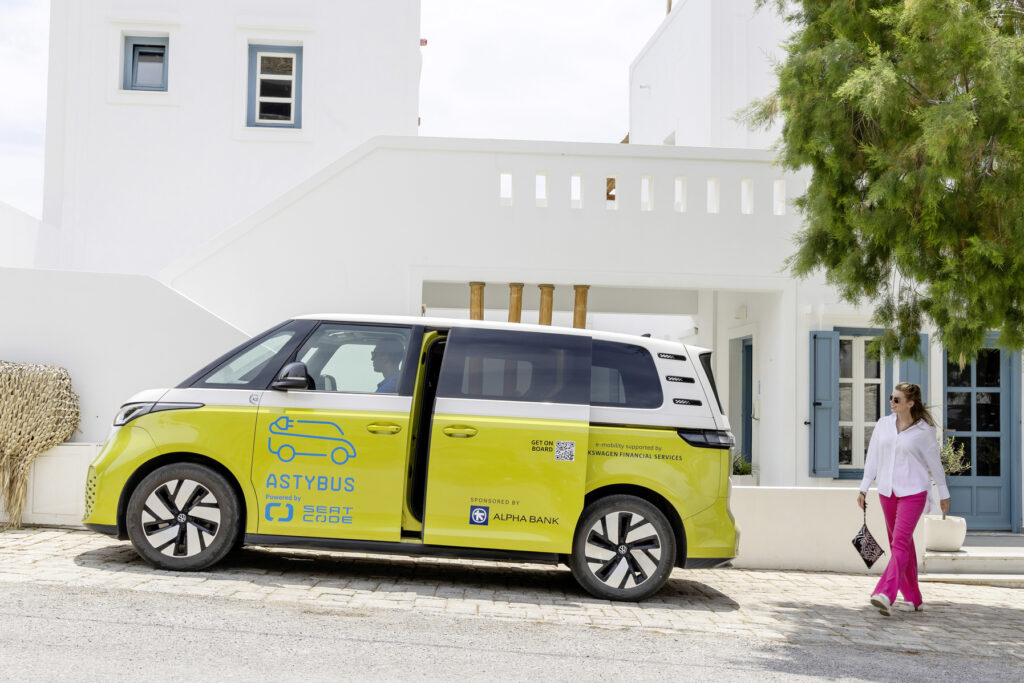
The ridesharing service ASTYBUS has replaced the traditional bus line, which had offered very limited local transport on Astypalea. Unlike the bus line, ASTYBUS operates all year round and connects many more places on the island. Depending on the season, up to five vehicles are used for this service. Complementing this groundbreaking service is astyGO, a vehicle-sharing platform that allows customers to rent e-cars from Volkswagen, e-scooters from SEAT MÓ, and e-bikes from Ducati. The seamless user experience is facilitated through the integrated astyMOVE app, highlighting the pivotal role of design in shaping a user-friendly mobility ecosystem.
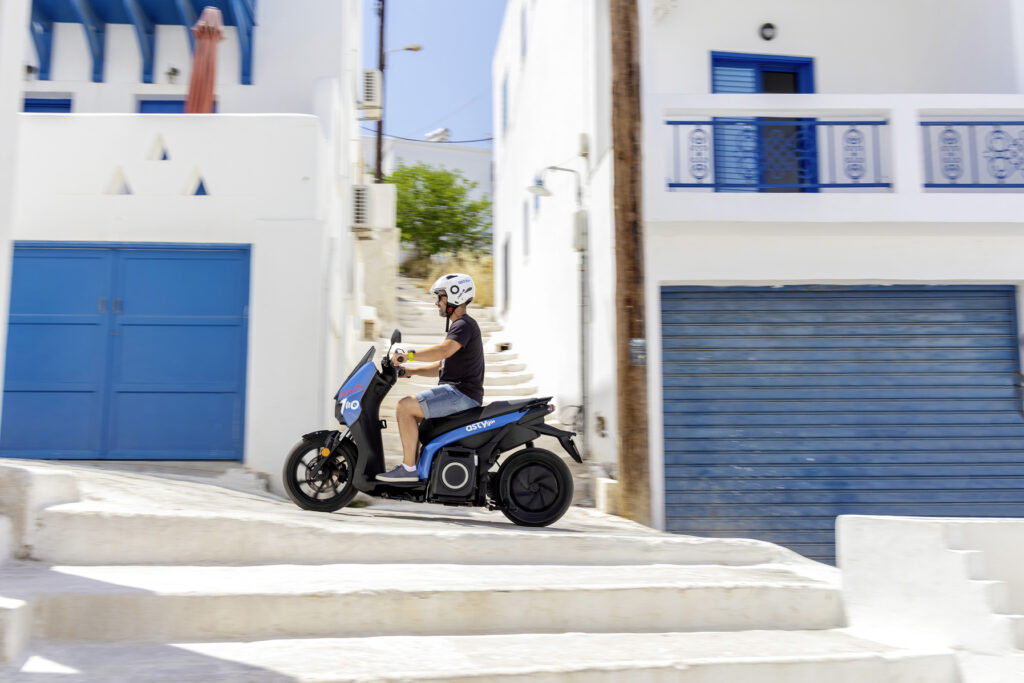
Maik Stephan, Head of Business Development of the Volkswagen Group, said: “Over the next two decades, we will see many of the changes that make up the Astypalea project in other regions of Europe as well. Particularly impressive is the people’s change in mood from initial skepticism to great approval. This shows that rapid transformation is possible if companies, politicians and society work together.”
Green Energy Revolution: The Journey Ahead
The next milestone is the construction of a hybrid power system, consisting of a solar park with a capacity of 3,5 megawatts and a battery storage system, which is scheduled to start operation in 2024. This system will cover 100 percent of the island’s energy needs for e-mobility and up to 60 percent of its general energy needs. The Greece-first tender for this energy project was just recently closed.
By 2026, the energy system is to be further expanded and, in the final stage, will cover around 80 percent of the total energy demand. So far, the island has mainly been supplied with electricity from diesel generators, which emit up to 5,000 tons of CO2 per year.
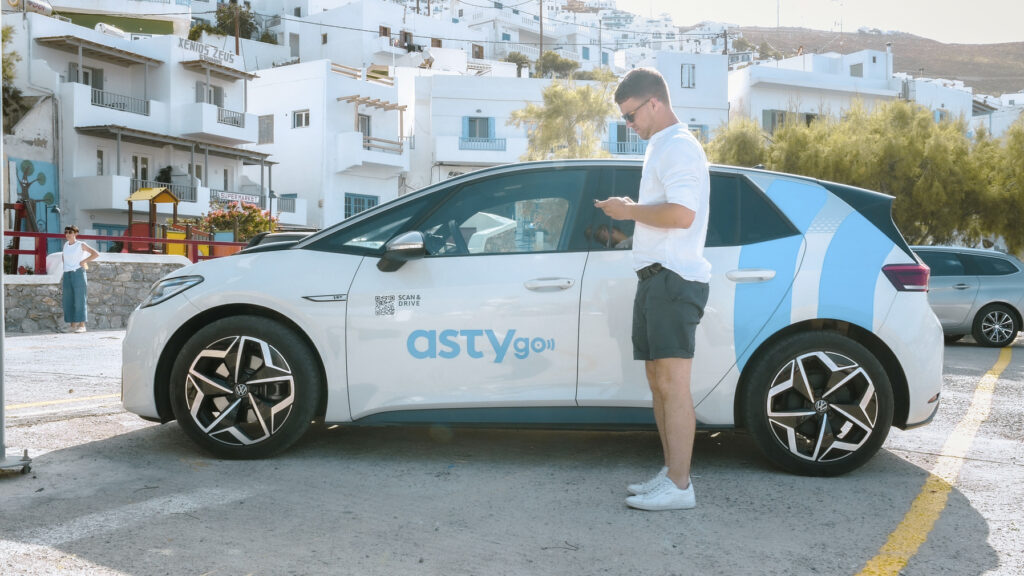
Evaluating Progress: A Scientific Study in Support
An accompanying scientific study conducted by researchers from the University of the Aegean in Greece and the University of Strathclyde in Scotland reveals the overwhelming support for Astypalea’s transformation. The study highlights an impressive 80 percent positive view of e-mobility and mobility services among the island’s inhabitants, marking a significant improvement since the project’s inception in 2021. The ridesharing service ASTYBUS is rated particularly well, with 97 percent approval. Among other things, the flexible use combined with low prices is appreciated. The study will continue to assess the project’s progress over the course of several years, providing valuable insights into the design and societal aspects of this transformative endeavor.
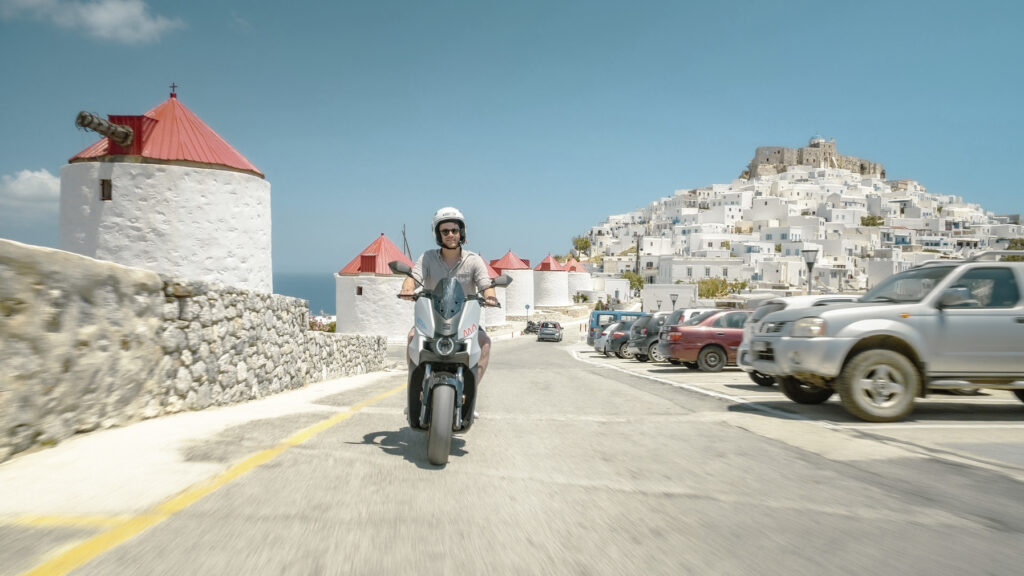
Designing a Sustainable Future: Volkswagen Group’s Commitment
Sustainability is one of 10 strategic fields of action that the Volkswagen Group is pushing forward at full speed under the leadership of CEO Oliver Blume. With a clear focus on e-mobility, the group is ambitiously driving the transition across its esteemed brands. Notably, Volkswagen has reinforced its commitment to reducing production-related CO2 emissions from passenger cars and light commercial vehicles by an impressive 50 percent by 2030, further solidifying their stance on sustainable design. The Astypalea project serves as a testament to the transformative power of design, highlighting the group’s comprehensive approach to catalyzing positive change within the automotive industry and beyond.
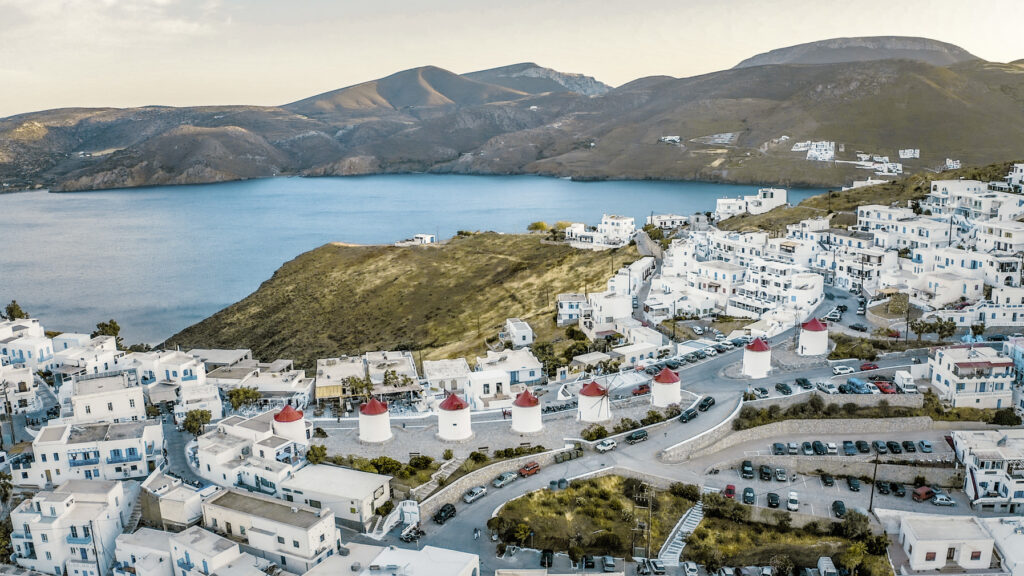
Astypalea’s remarkable journey towards becoming a hub of smart and sustainable mobility serves as an inspirational case study for regions throughout Europe. The successful integration of e-mobility, digital mobility solutions, and green energy on this idyllic Greek island underscores the transformative potential when design and collaboration intertwine.






